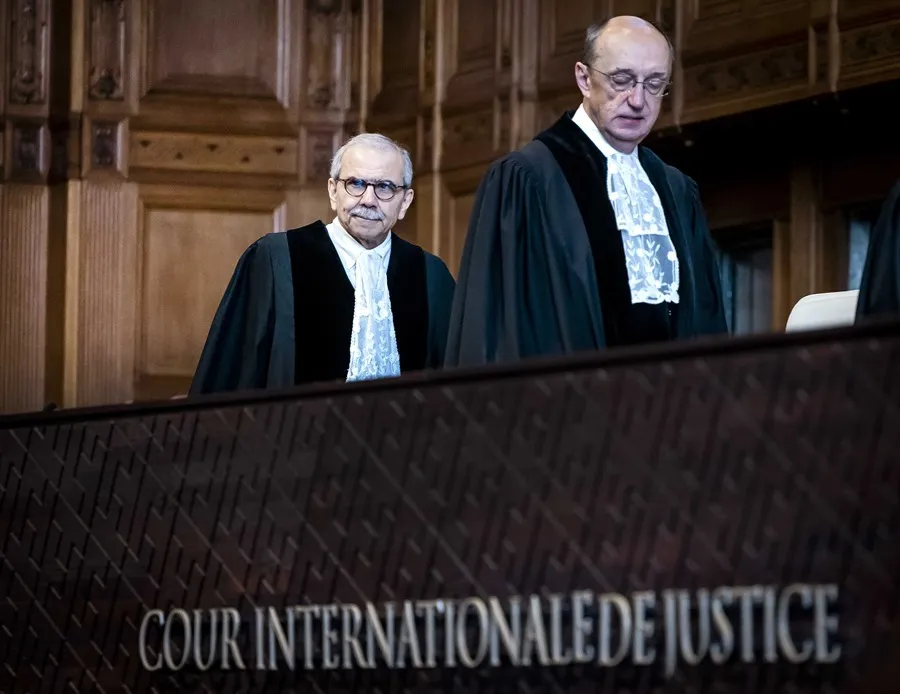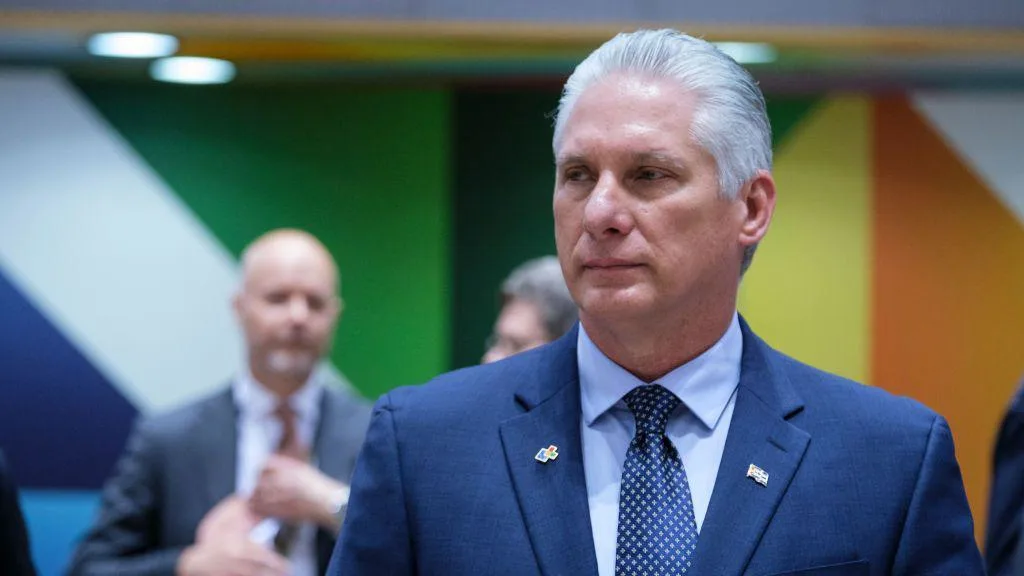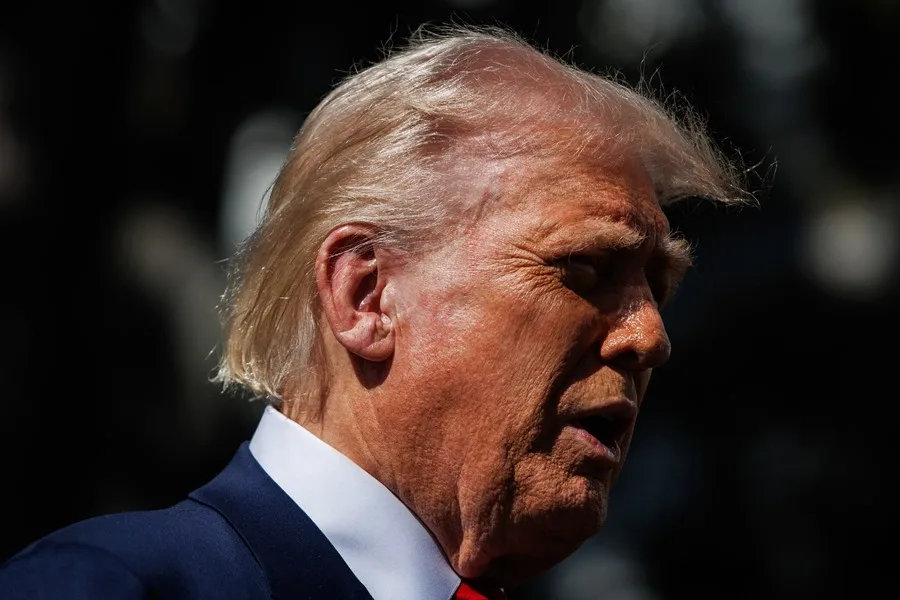International
Guyana asks the ICJ to require Caracas to stop the elections and any action to annex its territory

Guyana asked the International Court of Justice (ICJ) to issue “urgently” precautionary measures to require Caracas “not to hold elections anywhere in Guyanese territory” and “to refrain from any action that intends to annex” the territory in dispute, including the incorporation of “Guyana Esequiba” as part of Venezuela.
The ICJ explained this Friday that Guyana argued its request in Venezuela’s announcement to hold elections on May 25 in the Esequibo region, a territory in dispute between the two, which, the Guyanese Government said, would violate “its sovereignty, territorial integrity and political independence.”
Guyana maintains that the adoption of precautionary measures is “urgent” because these actions by Venezuela would cause “irreparable damage”, in addition to violating the order of this UN tribunal of December 2023, which demanded that Caracas refrain from taking “unilateral actions” that would alter the current situation, where Guyana administers the region.
In this sense, he asked to require Venezuela to “not hold elections anywhere in the Guyanese territory defined by the 1899 Arbitration Award,” including: extending the right to vote to people residing in the disputed territory; distributing ballots, voting cards or other physical or electronic electoral materials in the area; or presenting, appointing or supporting Venezuelan candidates in elections in the territory.
It also asked him to prevent Caracas from establishing polling stations, counting centers or electoral venues in that territory; to create, elect or appoint governors, legislative councils or other government officials for the area in dispute; or to communicate with residents of the territory in relation to elections organized by Venezuela.
The second precautionary measure requested by Guyana requires Caracas to “restain from any action that intends to annex, de jure or de facto, the disputed territory, including the incorporation of ‘Guayana Esequiba’ as part of Venezuela.”
Finally, he wants the ICJ to order Venezuela to “refrain from changing the current situation in the disputed area, where Guyana administers and exercises control.”
Venezuela claims the Esequibo region, about 70% of Guyana’s territory, including offshore oil reserves, arguing that the arbitration award is null and void because it “fraudulently affected 159,500 square kilometers of the territory” of Esequiba Guayana, as the Venezuelan government calls it.
The Venezuelan government recognizes as the only legal instrument to resolve this controversy the Geneva Agreement, signed in 1966 with the United Kingdom (before Guyanese independence), and which establishes the basis for a negotiated solution, but the negotiations lasted for more than two decades without results.
In 2018, Guyana, a former British colony, filed a lawsuit against Caracas at the ICJ and in April 2023, the Court declared itself competent to rule on the case, which was in a coup to Caracas, which had tried to declare this case “inadmissible,” and stressed on numerous occasions that it does not consent to the jurisdiction of this Court over this controversy.
International
Venezuela Debates Broad Amnesty Law Covering 27 Years of Chavismo

Venezuela’s Parliament began debating on Thursday a sweeping amnesty bill that would cover the 27 years of Chavismo in power, while explicitly excluding serious human rights violations and crimes against humanity.
The proposed legislation, titled the “Amnesty Law for Democratic Coexistence,” was introduced by interim President Delcy Rodríguez, who assumed power following the capture of Nicolás Maduro during a U.S. military operation.
The legislative session was convened for Thursday afternoon, with lawmakers holding an initial discussion focused on the general principles of the bill. This phase precedes a consultation process with civil society, after which the proposal will move to a final debate examining each article individually.
According to a draft of the bill obtained by AFP, the amnesty would apply to individuals accused of crimes such as “treason,” “terrorism,” and “incitement to hatred,” charges that were frequently brought against political prisoners over the past decades. The scope also includes offenses ranging from acts of rebellion to punishments imposed for social media posts or messages sent through private messaging services.
The bill’s explanatory text emphasizes reconciliation, stating that it seeks to move away from “vengeance, retaliation, and hatred” in favor of “opening a path toward reconciliation.”
However, the proposal explicitly excludes from its benefits crimes such as “serious human rights violations, crimes against humanity, war crimes, intentional homicide, corruption, and drug trafficking.”
These exclusions, the text notes, are based on strict compliance with the Venezuelan Constitution, which already prohibits granting amnesties or pardons for such offenses.
International
Díaz-Canel Calls for Talks With Washington Without Pressure as U.S. Tightens Oil Sanctions

Cuban President Miguel Díaz-Canel said on Thursday that his government is willing to engage in dialogue with the United States, provided that talks take place on equal terms and without pressure.
“Cuba is prepared to hold a dialogue with the United States on any issue that either side wishes to discuss,” Díaz-Canel said during a press conference broadcast nationwide on radio and television.
He stressed, however, that such dialogue would only be possible “without pressure, without preconditions, on the basis of equality, and with full respect for our sovereignty, independence, and self-determination.” The Cuban leader added that discussions should avoid issues that could be interpreted as interference in the country’s internal affairs.
Díaz-Canel’s remarks come at a time when Cuba is facing growing pressure from the administration of U.S. President Donald Trump, which has implemented a series of measures that have restricted the island’s access to fuel needed to generate electricity.
Washington has sought to prevent Cuba from receiving oil from Venezuela, its main ally for more than two decades, and has stepped up pressure to reduce crude shipments from Mexico. In addition, Trump signed an executive order in late January allowing the United States to impose tariffs on countries that sell oil to Cuba.
In that order, the U.S. president declared that Cuba represents an “unusual and extraordinary threat” to U.S. national security and foreign policy, accusing the island of aligning itself with hostile countries and actors.
International
HRW Warns Trump’s Influence Has Weakened Human Rights in Latin America

Human Rights Watch (HRW) warned that the political influence and rhetoric of U.S. President Donald Trump have contributed to a deterioration of human rights conditions across Latin America and the Caribbean. In its World Report 2026, the organization stated that several governments in the region have committed abuses against migrants and citizens, or have used U.S. policies as justification to impose harsher repressive measures.
During the first year of Trump’s new term, HRW observed that multiple countries violated the rights of foreign nationals under direct pressure from Washington. Other governments deepened security strategies based on militarization, mass detentions and excessive use of force, according to the report.
“The impact of the Trump administration has undoubtedly been negative in Latin America and the Caribbean,” said Juanita Goebertus, HRW’s Americas director. However, she emphasized that “governments in the region remain responsible for defending democracy and fundamental rights, regardless of who is in power in Washington.”
HRW also reported that the United States significantly reduced cooperation funding for human rights organizations and independent media. At the same time, countries such as El Salvador, Peru and Ecuador passed laws allowing the arbitrary closure of civil society organizations and media outlets, weakening democratic systems and institutional checks and balances.
The organization further criticized what it described as a “double standard” in U.S. foreign policy, which condemns human rights violations in Venezuela, Cuba and Nicaragua while overlooking serious abuses committed by allies such as El Salvador, Peru and Ecuador. The report also included criticism of the U.S. military attack against Venezuela in early 2026, warning that it could strengthen Nicolás Maduro’s regime and respond primarily to U.S. political and commercial interests.
-

 International2 days ago
International2 days agoEpstein Denies Being ‘the Devil’ in Newly Released Video Interview
-

 International3 days ago
International3 days agoSpain Seeks to Ban Social Media Access for Children Under 16
-

 International3 days ago
International3 days agoMexico to Send Humanitarian Aid to Cuba Amid U.S. Threats Over Oil Shipments
-

 International3 days ago
International3 days agoPetro Resumes Extraditions, Sends Top Criminal to U.S. Before White House Talks
-

 International3 days ago
International3 days agoMexico Arrests Suspect in Shooting of Sinaloa Lawmakers
-

 International2 days ago
International2 days agoHypothermia Linked to Most Deaths During New York’s Recent Cold Spell
-

 International2 days ago
International2 days agoDelcy Rodríguez Takes Control of Chavismo as Venezuela Enters a U.S.-Supervised Transition
-

 International2 days ago
International2 days agoHRW Warns Trump’s Influence Has Weakened Human Rights in Latin America
-

 Central America4 days ago
Central America4 days agoCosta Rica Goes to the Polls as Voters Choose Continuity or Change
-

 Central America3 days ago
Central America3 days agoLaura Fernández Says She Will ‘Never’ Allow Authoritarianism in Costa Rica
-

 Central America10 hours ago
Central America10 hours agoPanama Will Not Be Threatened, President Says Amid Rising Tensions With China
-

 International10 hours ago
International10 hours agoDíaz-Canel Calls for Talks With Washington Without Pressure as U.S. Tightens Oil Sanctions
-

 International10 hours ago
International10 hours agoVenezuela Debates Broad Amnesty Law Covering 27 Years of Chavismo
-

 International3 days ago
International3 days agoNFL Investigating Emails Linking Giants Executive to Jeffrey Epstein
-

 Central America10 hours ago
Central America10 hours agoBukele’s Approval Rating Climbs to 91.9% in El Salvador, Survey Shows


























